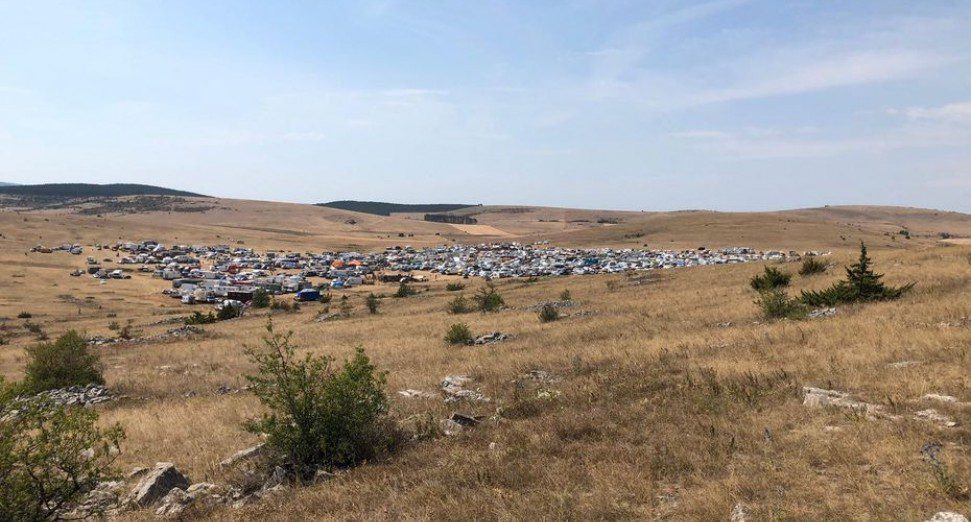Public health officials say large gatherings increase the spread of coronavirus. These warnings are falling on deaf ears, though, as illegal raves continue to blossom worldwide.
Festival cancellations across the globe helped fuel renewed interest in underground raves.
“I think people are just longing to socially connect,” Berlin-based DJ Elias Doré told the Reuters news agency.
People searching for a way to connect, following months of being locked down due to the global COVID-19 pandemic, seemed to have found it at these illegal raves.
A prohibited party took place in the Las Vegas desert this weekend. Two more took place in New York City too.
A massive bonfire served as the Nevada rave’s centerpiece before police shut it down and sent folks home. Nearly 300 people attended the NYC gatherings. These events, coupled with a Independence Day rave that also occurred in the Nevada desert, has one expert saying young people aren’t getting it.
“There’s that urge to want to get out, to be around friends, and be around family, and just have a good time cause it is the summer,” said Dr. Christina Madison.
Dr. Madison is an associate professor of pharmacy practice with the Roseman University of Health Sciences.
“We really don’t know how [COVID-19] is going to affect you, even if you’re young. So saying ‘I’ll get it and be fine’ is not a good strategy,” she said. “I implore people to do the right thing. Think about your risk–but also others in your household.”
Still, others would argue that, in these uncertain times, illegal raves are a welcome break from reality.
Illegal raves continue their evolution
“Rave culture can be observed as the means by which ordinary working class people get together on weekends to escape the realities of their social position,” Steven Brown writes in the peer-reviewed Plymouth Law and Criminal Justice Review.
“Faced with the real prospect of…privatization, unemployment and general social unrest, a weekend of…sweating away on the dance floor may seem like the perfect answer to any problems.”
“It’s about having fun and playing loud music that we like,” said one Berlin raver.
Illegal raves continue to evolve and flourish in 2020. Still, these “unlicensed music events” remain true to their underground roots.
They want to party while avoiding attention from law enforcement.
The 90s and early 2000s were marked by secret raves in barren industrial warehouses. These days, organizers pick venues far away from urban areas. This may be a Nevada desert or sparsely populated green space in southern France.
“The last thing we want is to disturb the neighbours because then it is easier to get in trouble with the police,” Alvaro, the organiser of an illegal rave, told Reuters.


